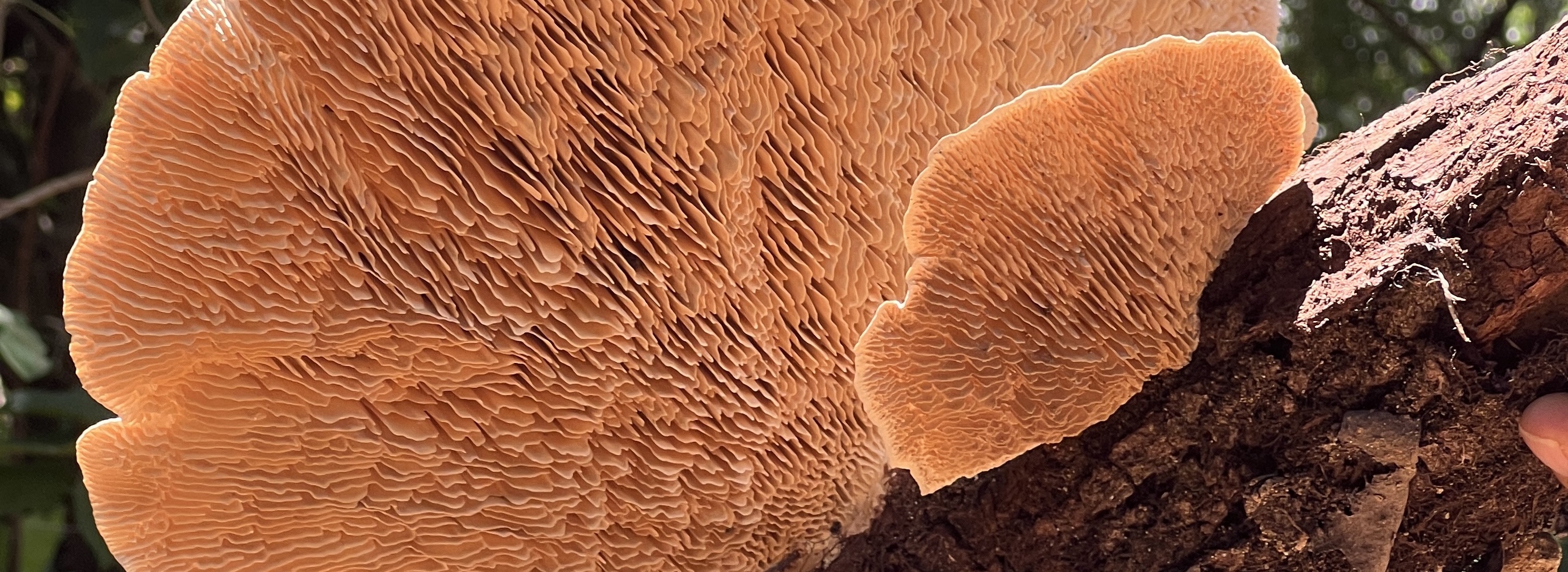
Monteverde Institute: Tropical Ecology and Conservation
Alternative Title
El efecto de la abundancia de árboles circundantes sobre la abundancia de micorrizas en Ocotea monteverdensis (Lauraceae)
Files
Download Full Text (188 KB)
Publication Date
December 2016
Abstract
A very important mutualism for many plant species is the association between mycorrhizal fungi and its host plant. Mycorrhizal fungi assist in nutrient and water uptake, helping to protect the plant from desiccation. The hyphae of the fungus can spread into the surrounding soil and link with other mycorrhizae to form mycorrhizal networks. The network then allows for interplant communication either between the same or different species of plant. This study examines how the number and size of surrounding trees impacts the abundance of mycorrhizae present in the roots of Ocotea monteverdensis. I collected one root from 28 different Ocotea monteverdensis trees, and quantified the number of surrounding trees by counting all trees within a 3-meter radius of the sample. I then broke the surrounding trees into three different size categories. After looking at three sections from each root, I determined the average number of mycorrhizae present. In the end, it was concluded that the number of surrounding trees did not affect the amount of mycorrhizae present. I also found that the size of the surrounding trees did not have an affect on the abundance of mycorrhizae in roots of O. monteverdensis. Further studies should be conducted on other factors that may affect mycorrhizal abundance in O. monteverdensis in order to provide the best possible environment for the mycorrhizae to thrive in. This potentially could help to preserve and improve the survival of this critically endangered species.
Resumen
La asociación entre hongos micorríticos y las raíces de plantas es un mutualismo de suma importancia para muchas especies. Estos hongos asisten a la planta en la absorción de agua y nutrientes, ayudando así al crecimiento de la misma y a prevenir desecación. Las hifas de estos hongos pueden extenderse y enlazarse con otras micorrizas, formando así una red micorrítica entre árboles. Esta red permite la comunicación entre plantas de la misma o diferente especie. Estudié como el número y tamaño de árboles rodeando un árbol central de la especie Ocotea monteverdensis afecta la abundancia de micorrizas en el mismo. Colecté una raíz de 28 individuos de O. monteverdensis y cuantifiqué el número de árboles alrededor de cada individuo dentro de un radio de tres metros. Los árboles circundantes fueron categorizados en tres grupos de tamaño. Las muestras de raíces fueron examinadas para determinar la abundancia de micorrizas en las mismas. Conté el número de micorrizas en tres sub muestras por raíz y calculé el promedio. La abundancia dde micorrizas no presentó correlación con el número de árboles circundantes ni con el tamaño de los mismos. Más investigaciones deben ser llevadas a cabo para estudiar otros factores que puedan afectar la abundancia de micorrizas de O. monteverdensis. De esta manera se puede determinar el mejor ambiente para este mutualismo, lo cual potencialmente podría ayudar a la conservación y supervivencia de esta especie críticamente amenazada.
Keywords
Mycorrhizal fungi, Lauraceae, Cloud forest ecology, EAP Fall 2016
Palabras claves
Hongos micorrizas, Ecología del bosque nuboso, EAP Otoño 2016
Extent
8 pages
Geographic Location
Monteverde (Puntarenas, Costa Rica)
Holding Location
Monteverde Institute
Language
English; Spanish
Media Type
Articles
Format
Digital Only
Identifier
M39-00607
Type
Book
Recommended Citation
Lindsay, Jenna, "The effect of abundance of surrounding trees on the abundance of mycorrhizae in Ocotea monteverdensis (Lauraceae), December 2016" (2016). Monteverde Institute: Tropical Ecology and Conservation. 175.
https://digitalcommons.usf.edu/tropical_ecology/175


